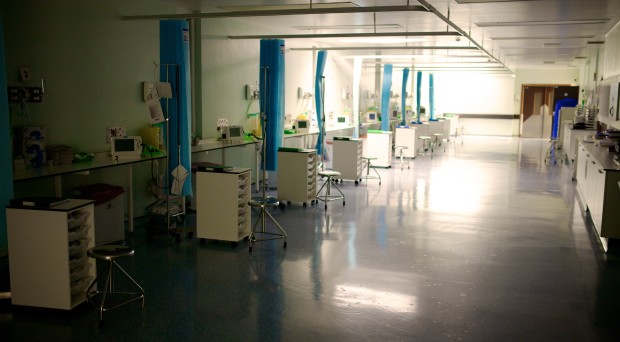
 Guy Worley is a training general surgeon in London, UK. His specialty is colorectal surgery.
Guy Worley is a training general surgeon in London, UK. His specialty is colorectal surgery.
How did you become interested in surgery?
I became interested in surgery towards the end of medical school. I have always been a practical person, and I was fascinated by the ‘craft’ of surgery, which added an extra dimension to medicine. I think there’s a romantic appeal about using your hands to cure illness, and being trusted to explore beneath someone’s skin is a privilege that few people will experience. I know that sounds a little corny!
As a medical student I don’t feel that I had much exposure to operations and theatres, but when I started working as a junior doctor I spent as much time in the operating theatre as possible, and the more I did, the more I enjoyed it.
I have enjoyed all the types of surgery that I have experienced, and they are more similar than they are different
It’s almost arbitrary that I ended up choosing gastrointestinal surgery as a specialty, as I have enjoyed all the types of surgery that I have experienced, and they are more similar than they are different. There do seem to be certain personalities associated with different specialties, so take from that what you will!
I advise medical students and junior doctors to make an effort to see as much as they can before making a choice on career path, but I pigeon-holed myself fairly early on.
What are the biggest challenges about your work?
Moving every six months to a year can be difficult, and the unsociable nature of the work means that I don’t see as much of my wife, friends and family as I would like.
I’m extremely proud to work for the NHS, and would like to think that I do my best to provide its users with the highest possible standards of care. However, working in the NHS is often an organizational challenge because of the size of the system we work in. It’s frustrating to see that things could be done better, or more efficiently, but knowing that it will be difficult to engineer change.
I really dislike having to let patients down and cancel their surgery because there are sometimes no beds available.
Ultimately you have to be a professional, and strike the right balance between compassion, empathy and objectivity that will allow you to do the job as best you can for your patients
It is difficult to describe what it feels like to be responsible for a complication or a mistake that has caused someone suffering. Doctors deal with this in different ways, some better than others. Ultimately you have to be a professional, and strike the right balance between compassion, empathy and objectivity that will allow you to do the job as best you can for your patients.
Is there anything you think someone considering specializing in surgery should know?
There is a lot more to being a surgeon than operating.
Amongst other things, one needs to be a shrewd decision maker, responsible leader, excellent communicator, be able to deal with pressure and stress, deal without much sleep, and have ‘good hands’. You don’t necessarily have to excel in all of these areas, but if you’re really lacking in any one of them, then the profession probably isn’t right for you.
Many surgeons will be more than happy to be approached for advice regarding careers, or to allow you to spend a time observing them work. If you don’t ask you’ll never know, so rather than wonder about whether it’s something you’d like to do, go and find out!
Good luck.
You can read Guy’s blog on a day in the life of a colorectal registrar here: https://blogs.biomedcentral.com/on-medicine/2015/08/07/a-day-in-the-life-of-a-colorectal-registrar/
2 Comments